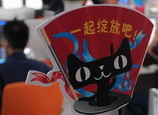
Supervision is key
Jia said it is hard to predict how much effect the new regulations will have on the auto market, but he stressed that the challenge is to ensure the regulations are followed.
In 2004, the General Administration of Quality Supervision, Inspection and Quarantine (AQSIQ), the National Development and Reform Commission, the Ministry of Commerce and the General Administration of Customs jointly created the Management Rules of Automobile Faulty Products, but it has little legal punch.
It imposes a maximum total fine of 30,000 yuan ($4,754), regardless of how many cars are affected and how much they cost, and the responsibilities and obligations of the manufacturers are not clearly defined.
The new regulation now strengthens punishment, including the maximum 10-percent fine.
"Although punishment is increased and there are laws to go by, it doesn't mean the regulation will be strictly enforced," Jia said.
According to the regulation, relevant government departments can launch an investigation upon discovery of an auto defect.
"But it doesn't say how the department in charge can come across the information. Therefore, the government should also establish a third-party supervisory body that can receive consumer claims and create a database for sharing quality information, safety technology and analysis of road accidents," Jia said.
Jia added that the government should give consumers more power when they encounter an auto defect. Consumers should also have the right to apply for a recall through the government and have the right to be informed of any recall results, he said.
Dong Lequn, Deputy Director of the Department of Law Enforcement at the AQSIQ, said automakers should strengthen their after-sales services and be more responsible to the consumers.
According to Dong, automakers should collect information on faulty products in a timely manner, take customer claims seriously and provide timely information of the vehicles' quality and safety. Upon detecting a defect, an investigation should be immediately launched and a report sent to the supervising authority.
Still, many domestic manufacturers aren't prepared to do any of the above, said Dong. Therefore, a thorough and swift recall investigation remains elusive.
















 Single's Day causes enormous pressure on express service
Single's Day causes enormous pressure on express service


![]()
